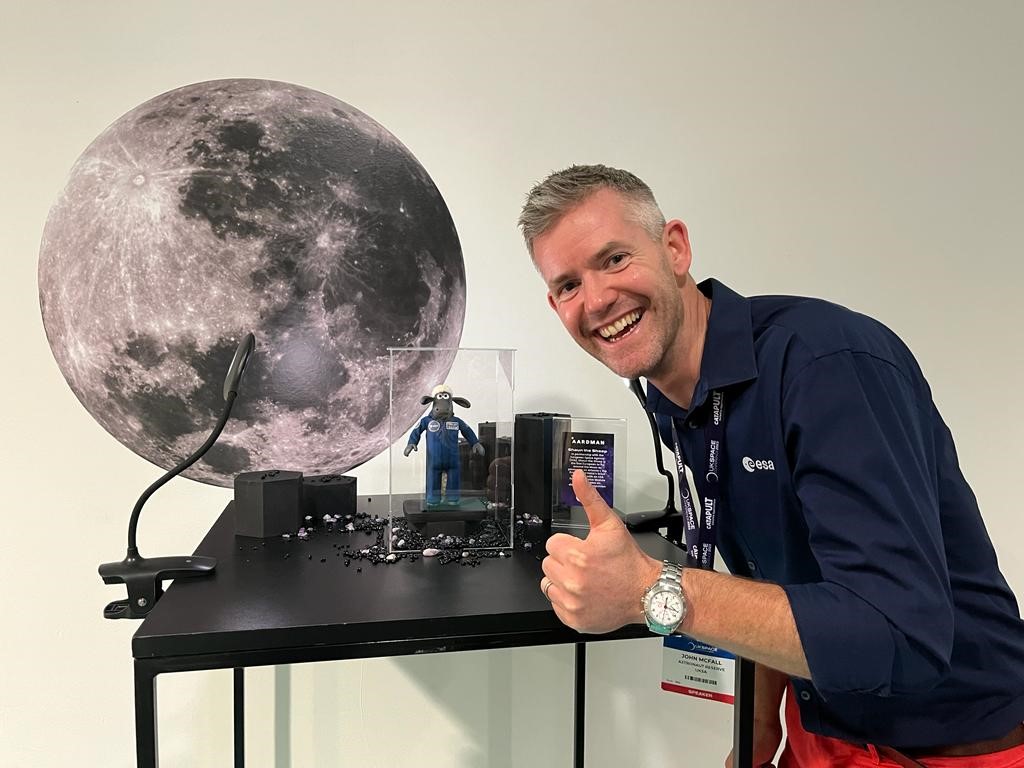It’s not every day astronauts visit Belfast, but last week ESA astronaut reserve member John McFall joined thousands of delegates at the UK Space Conference, held for the first time in the city. An opportunity to showcase the role of the UK in the European space sector, representatives from ESA’s Business Applications and Space Solutions (BASS) and Earth Observation (EOP) programmes were on hand at the ESA Connect Zone to demonstrate their work and discuss future opportunities with businesses and researchers.
The Zone was highly popular with visitors who, using the Earth observation interactive table, discovered the impact of climate change around the world. This information was made possible by Earth observation satellites which provide extraordinary insights into our climate and environment with the data they produce used across multiple applications. Visitors also enjoyed meeting Europe's first 'Lamb-baaaassador' Shaun the Sheep, who returned from the Artemis I mission to the moon in December 2022, and John McFall who inspired young delegates with career and learning opportunities in the space industry.
.
Speaking on the final day of the conference, Nick Appleyard, Head of Applications and Solutions at ESA, explained how space technology is already improving life on earth, helping protect critical infrastructure, aiding emergency responses to crises and playing a vital role in the global fight to combat climate change.
With space defined as part of the UK’s Critical National Infrastructure (CNI), developing resilient space technologies is key. “CNI relies on a wide range of resilient space technologies including position, navigation and timing (PNT) services and we are committed to making these services more resilient for both CNI users and our wider economy,” explained Nick. “Space capabilities are already central to many basic and safety-critical civil functions and this dependency on space will only increase.”Looking at the role of satellite applications in the green transition, the figures speak for themselves. With more than 183M Euro invested in 300 green ESA BASS activities across a wide range of sectors since 2010, the work of BASS is impacting lives not only in Europe but around the world. The vast majority of the investment is in four key areas: sustainable transport, protecting ecosystems, sustainable agriculture and the green energy transition. ESA is working closely with key players in these areas. Tasks forces are already established in the automotive, energy and smart cities domains, with more planned.
“The green transition now drives 48% of all new ESA Space Solutions and is expected to rise,” said Nick. “Researchers and innovators will use space in new and exciting ways, improving the way we live and work and the UK is poised to be in the vanguard of this next phase of space innovation.”
The UK is the largest contributor to the BASS programme, with 50million GBP available to UK companies proposing sustainable Space Solutions in the BASS programme in 2024-25. It is also home to ESA’s European Centre for Space Applications and Telecommunications (ECSAT).



